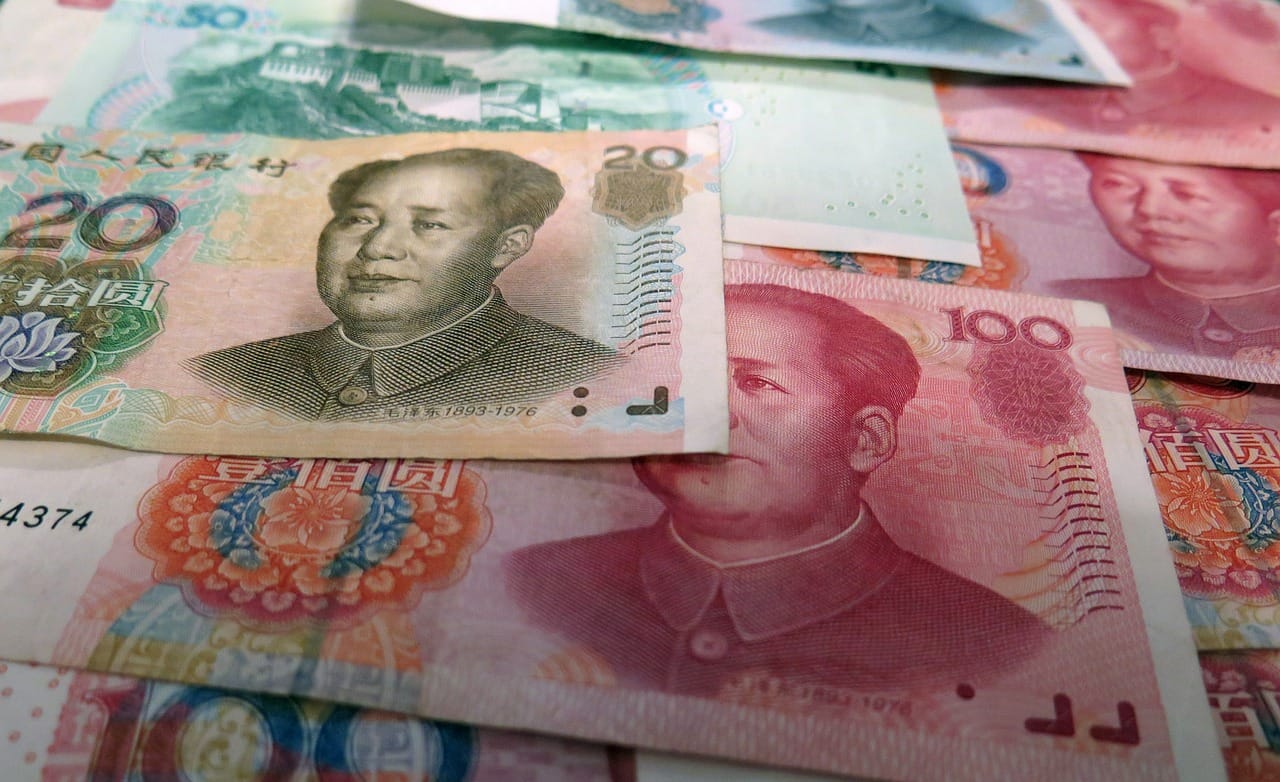Downward Pressure on China's Renminbi | Sharp Decline in Inbound Investment Leads to Net FDI Deficit
Explore the factors causing downward pressure on China's Renminbi as a sharp decline in inbound investment results in a net FDI deficit. Stay informed on economic trends

Introduction to China's Renminbi and Foreign Direct Investment (FDI)
As the world's second-largest economy and a key player in the global marketplace, China's Renminbi holds significant influence in the realm of foreign direct investment (FDI). The Renminbi, denoted as RMB, serves as the official currency of the People's Republic of China and plays a pivotal role in shaping the dynamics of international trade and investment. Understanding the interplay between the Renminbi and FDI is essential for comprehending the intricate web of economic relationships on a global scale.
China's Renminbi has undergone a series of transformations, evolving from a tightly controlled currency to one with increasing internationalization. The gradual opening up of the Renminbi's capital account has facilitated greater accessibility for foreign investors, thereby impacting the flow of FDI into China. The intricate relationship between the Renminbi and FDI serves as a nuanced indicator of China's economic prowess and its integration into the global financial landscape.
The significance of FDI in China's economic development cannot be overstated. Over the years, China has emerged as a magnet for FDI, attracting substantial inflows of capital from multinational corporations and foreign entities seeking to capitalize on the country's vast market potential and burgeoning consumer base.
The Net FDI Deficit in China's Renminbi

In recent years, China has grappled with a net FDI deficit in its Renminbi, signaling a shift in the traditional investment landscape. The disparity between inbound and outbound FDI has raised concerns and prompted a closer examination of the underlying factors contributing to this phenomenon.
The net FDI deficit in China's Renminbi can be attributed to a multitude of factors, including evolving global investment patterns, domestic policy shifts, and changes in market dynamics. As China continues to expand its presence on the global stage, the nature of FDI flows has undergone a transformation, resulting in a deficit in the Renminbi's net FDI position.
Understanding the implications of the net FDI deficit in China's Renminbi necessitates a comprehensive analysis of the interconnected economic variables at play. The intricacies of currency valuation, market diversification strategies, and cross-border investment patterns converge to shape the evolving landscape of FDI in China, underscoring the need for a holistic approach to address the underlying challenges.
Inbound Investment Decline in China
Despite its status as a prominent destination for FDI, China has witnessed a notable decline in inbound investment in recent years, marking a departure from previous trends. The factors contributing to this decline are multifaceted, encompassing a confluence of economic, geopolitical, and regulatory influences that have reshaped the investment environment within China.
The decline in inbound investment can be attributed to a confluence of factors, including heightened geopolitical tensions, evolving trade dynamics, and shifts in industry-specific regulations. The intricate interplay of these variables has culminated in a discernible reduction in the inflow of FDI into China, posing challenges and opportunities for both domestic and foreign investors navigating the shifting investment landscape.
As China recalibrates its economic priorities and navigates the complexities of a rapidly evolving global landscape, the implications of the inbound investment decline reverberate across various sectors and industries, prompting a reevaluation of investment strategies and risk management frameworks to adapt to the changing paradigm.
Investment Trends and Global Companies' Exposure Reduction
The evolving investment trends in China have precipitated a strategic response from global companies, leading to a deliberate reduction in their exposure to the Chinese market. This shift in approach reflects the dynamic nature of global investment patterns and the imperative for multinational corporations to recalibrate their risk profiles and operational footprint in response to changing market conditions.
The reduction in exposure to the Chinese market by global companies underscores the impact of macroeconomic shifts, regulatory developments, and geopolitical considerations on investment decision-making. As companies assess the risk-reward dynamics of operating in China, the strategic realignment of their investment portfolios and market presence reflects a nuanced response to the evolving economic landscape.
The recalibration of global companies' exposure to China underscores the interconnectedness of global markets and the ripple effects of economic dynamics on investment behavior. The strategic maneuvering of multinational corporations in response to shifting investment trends in China underscores the adaptive nature of businesses in navigating the complexities of the global economy.
Impact of Economic Shifts on Inbound FDI in China
The impact of economic shifts on inbound FDI in China is emblematic of the broader macroeconomic forces shaping global investment patterns. As China undergoes a transition in its economic structure, marked by a shift towards innovation, technology-driven growth, and sustainable development, the implications for inbound FDI reverberate across sectors and industries.
The recalibration of inbound FDI in response to China's economic shifts underscores the imperative for investors to align their strategies with the evolving priorities and opportunities within the Chinese market. The emergence of new growth drivers, industry clusters, and policy imperatives presents a dynamic landscape for inbound FDI, necessitating a forward-looking approach to harnessing the potential of China's evolving economy.
The impact of economic shifts on inbound FDI in China extends beyond traditional sectoral boundaries, permeating the realms of innovation, sustainability, and digital transformation. As China positions itself as a hub for cutting-edge technologies and emerging industries, the recalibration of inbound FDI reflects a strategic convergence of global investment trends with China's evolving economic dynamics.
Comparison with Investment Trends in Southeast Asia, India, and Mexico
In juxtaposing the investment trends in China with those of Southeast Asia, India, and Mexico, a nuanced understanding of the global investment landscape emerges, underpinned by regional dynamics, demographic trends, and industry-specific opportunities. The comparative analysis of investment trends serves as a lens through which to discern the unique value propositions and investment climates of diverse economies.
The investment trends in Southeast Asia, India, and Mexico offer compelling insights into the varied trajectories of FDI inflows, industry clusters, and policy frameworks shaping the investment ecosystems within these regions. The comparative assessment of investment trends enriches the discourse on global investment patterns, offering a multifaceted perspective on the evolving dynamics of FDI.
By examining the investment trends in Southeast Asia, India, and Mexico alongside those of China, investors and policymakers gain valuable insights into the nuanced interplay of economic, regulatory, and market forces that underpin the global investment landscape. The comparative analysis illuminates the distinctive attributes and competitive advantages of each region, informing strategic investment decisions and policy formulations.
Currency Valuation and Market Diversification Strategies

The intricacies of currency valuation and market diversification strategies are instrumental in navigating the complexities of global investment patterns, particularly within the context of China's Renminbi and its impact on FDI. The interplay between currency valuation and market diversification strategies underscores the imperative for investors to adopt a holistic approach to managing currency risk and optimizing investment portfolios.
The valuation of the Renminbi vis-à-vis other global currencies shapes the risk-return dynamics of FDI in China, influencing capital allocation decisions and hedging strategies. The nuanced understanding of currency valuation empowers investors to mitigate currency risk and capitalize on market opportunities, thereby enhancing the resilience and performance of their investment portfolios.
Market diversification strategies offer a strategic pathway for investors to optimize risk-adjusted returns and capitalize on emerging opportunities across diverse markets. The diversification of investment portfolios, coupled with a nuanced understanding of currency dynamics, enables investors to navigate the evolving landscape of FDI and harness the potential of dynamic market conditions.
Economic Policy and International Trade Implications
The economic policy and international trade implications of China's Renminbi and its FDI dynamics reverberate across global markets, shaping the contours of international trade and investment flows. As China fine-tunes its economic policies and trade frameworks, the implications for FDI underscore the interconnectedness of global economies and the imperative for a collaborative approach to addressing shared challenges.
The alignment of economic policy with international trade imperatives serves as a linchpin for fostering a conducive environment for FDI, promoting cross-border investment, and enhancing economic cooperation. The strategic convergence of economic policy and international trade considerations reflects a holistic approach to fostering sustainable economic growth and facilitating the seamless flow of capital across borders.
The implications of economic policy and international trade dynamics extend beyond the purview of individual economies, permeating the realms of global supply chains, value creation, and economic resilience. As China recalibrates its economic policy frameworks and trade relationships, the ripple effects on FDI underscore the interconnected nature of the global economy and the imperative for collaborative solutions to foster inclusive and sustainable growth.
Business Strategy and FDI in Emerging Markets
The strategic imperatives for business strategy and FDI in emerging markets encompass a multifaceted approach to navigating the complexities of dynamic investment landscapes, capitalizing on growth opportunities, and managing operational risks. As global companies venture into emerging markets, including China, Southeast Asia, India, and Mexico, the strategic alignment of business objectives with FDI imperatives assumes paramount significance.
The formulation of a robust business strategy in the context of FDI in emerging markets requires a nuanced understanding of local market dynamics, regulatory frameworks, and consumer behavior. The strategic localization of operations, coupled with a keen focus on innovation and sustainability, positions companies to leverage the growth potential of emerging markets and cultivate enduring value propositions.
The strategic alignment of business strategy with FDI imperatives in emerging markets underscores the imperative for global companies to adopt an agile and adaptive approach, aligning their operational footprint with the evolving economic dynamics and market opportunities. The strategic maneuvering of companies in emerging markets reflects a convergence of global investment patterns with localized strategies, underscoring the dynamic nature of business expansion in a globalized world.
Navigating the Changing Landscape of Global Investment Patterns
In conclusion, the interplay between China's Renminbi and foreign direct investment (FDI) encapsulates the intricate dynamics of global investment patterns, economic shifts, and market diversification strategies. The evolving landscape of FDI in China, coupled with the implications for international trade and economic policy, underscores the imperative for a holistic understanding of the interconnected forces shaping the global investment ecosystem.
As global companies recalibrate their exposure to the Chinese market and investors navigate the nuances of currency valuation and market diversification, the imperative for a forward-looking approach to FDI in emerging markets becomes increasingly pronounced. The comparative analysis of investment trends in Southeast Asia, India, and Mexico alongside those of China offers valuable insights into the diverse opportunities and challenges inherent in navigating the changing landscape of global investment patterns.
In navigating the changing landscape of global investment patterns, the strategic convergence of business strategy with FDI imperatives in emerging markets assumes paramount significance, reflecting the adaptive nature of global companies and the dynamic interplay of economic forces. As China's Renminbi continues to exert influence on FDI dynamics, the imperative for a collaborative and inclusive approach to fostering sustainable economic growth and investment remains central to shaping the future of global investment patterns.
Thank you for reading! If you're interested in delving deeper into the complexities of FDI in China and the evolving global investment landscape, feel free to explore our in-depth research reports and analyses to stay ahead of the curve




